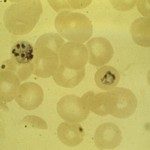Link to Pubmed [PMID] – 38506617
Link to DOI – 10.1080/14737159.2024.2333277
Expert Rev Mol Diagn 2024 Mar; ():
Attention-deficit/hyperactivity disorder (ADHD) is one of the most common neurodevelopmental conditions and is highly heterogeneous in terms of symptom profile, associated cognitive deficits, comorbidities, and outcomes. Heterogeneity may also affect the ability to recognize and diagnose this condition. The diagnosis of ADHD is primarily clinical but there are increasing research efforts aiming at identifying biomarkers that can aid the diagnosis.We first discuss the definition of biomarkers and the necessary research steps from discovery to implementation. We then provide a broad overview of research studies on candidate diagnostic biomarkers in ADHD encompassing genetic/epigenetic, biochemical, neuroimaging, neurophysiological and neuropsychological techniques. Finally, we critically appraise current limitations in the field and suggest possible ways forward.Despite the large number of studies and variety of techniques used, no promising biomarkers have been identified so far. Clinical and biological heterogeneity as well as methodological limitations, including small sample size, lack of standardization, confounding factors, and poor replicability, have hampered progress in the field. Going forward, increased international collaborative efforts are warranted to support larger and more robustly designed studies, develop multimodal datasets to combine biomarkers and improve diagnostic accuracy, and ensure reproducibility and meaningful clinical translation.

